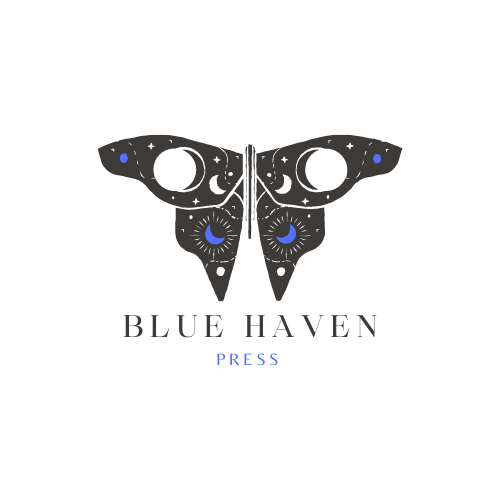
As some of you know, Lure was a finalist in the UK Wishing Shelf Awards this year. It’s a wonderful, legitimate contest and one I highly recommend for several reasons. The contest is run by Edward Trayer, a Young Adult/Children’s book author, who created a fair and honest process to help Indies. The entry fee is reasonable (£39) and books are read and judged by reading teams in London and Stockholm. As a Canadian, I’m excited to hear what European readers think of my work. For your entry fee, you receive excellent feedback and an honest Goodreads and Bookbub review based on readers’ comments. Finalists have the option of purchasing a real gold medal. I love to show mine to customers at markets.

I received my feedback this morning. First, I’ll share what the readers said about LURE, and then I’ll add some general commentary for Indie authors that I share with the Wishing Shelf team. I like that the reader is identified by age and gender, and that you also receive the stats. So here we go:
5 Star Rating from 15 readers
Editing: 9/10 - Writing Style: 9/10 - Content: 9/10 - Cover: 3/5
Of those 15 readers: 14 would read another book by this author. 10 thought the cover was good or excellent. 15 felt it was easy to follow. 14 would recommend this book to another reader to try. Of all the readers — 5 felt the author’s strongest skill was ‘plotting a story’ — 6 felt the author’s strongest skill was ‘developing the characters’ — 4 felt the author’s strongest skill was ‘writing style’ — 15 felt the pacing was good or excellent — 14 thought the author understood the readership and what they wanted. Readers’Comments (This part makes my heart thump!) “Excellent chemistry between the characters, and plenty happening to keep most thriller lovers turning the page. The ‘disturbing discovery’ is when the book took off for me. I plan to hunt out other novels by this author.” Male reader, 37 “A surprisingly fun story considering the subject matter. The author is good at plotting and developing the two central characters, Hawk and Jesse. I loved the twists in the story, and the setting worked perfectly.” Female reader, 38 “Always fun to find an author who’s prepared to offer readers a highly original tale with a highly original setting. I thoroughly enjoyed this drama.” Female reader, 42 “I suspect anybody who enjoys a cleverly plotted mystery and has an interest in Native American culture will find this a compelling story. The author works hard – and is mostly successfully – in delivering suspense, mystery, and even romance.” Female reader, 53 To Sum It Up: ‘A skillfully plotted mystery with a cast of fully developed characters. A FINALIST and highly recommended!’ The Wishing Shelf Book Awards I'm thrilled by the feedback but what I really appreciate is the depth of analysis. This isn't about glitz. It's about quality and affect on readers. So, thank you Edward Trayer (Billy Bob Buttons) for a well-conceived and managed contest. Tips from The Wishing Shelf Filtered Through the Lens of My Experience: Included was some general feedback Edward and his teams have amassed over the years. Indie authors, especially when starting out, tend to make mistakes. As a book reviewer and voracious reader, I often see the issues I'm paraphrasing here. Blurb: A book blurb is not a summary; it's a sales pitch. Make it short and enticing. Who are the main characters: protagonist and antagonist. What are the stakes? Include a cool tagline. For example: A SEXY HITCHCOCKIAN THRILLER THAT DEMYSTIFIES VAMPIRE AND ILLUSTRATES THE POWER OF LOVE (To Render a Raven.) I also add author endorsements. Formatting: Though it's tempting to reduce printing costs by using small fonts and slim margins, don't make your text illegible or crowded along the inside crease. Use clear, crisp, readable fonts. Don't be seduced by weird, cool, or pretty. Pacing: Don't rush the climax and the ending. As Edward says it should be "BIG AND EXCITING" not two pages and THE END. Editing: Nothing turns a reader off like typos. Hire a professional editor to scour your text for spelling and grammar problems. The author's eyes tend to glance over the text. Beginnings: Start "in medias res" or in the middle of the action. Nothing kills the excitement of a story like pages of setting, backstory, and description. Yes, we need to know place and time, but try to show it by having your character engaged in some exciting activity that will grab the reader. Word Length: Character development takes time. Don't rush it and publish a novella that should be a full-length novel. Most novels are between 70,000 - 90,000 words, but check the expectations for your genre. Point-of-View: Omniscient is out and Limited Omniscient or First Person is in. This means, the viewpoint character only knows certain things, and not what's happening in the heads of other characters. They can assume, wonder, or interpret via the actions of others but "head-hopping" is a cardinal sin. When you're tempted to describe another character's reactions or thoughts in detail, it's time to switch scenes. I hope you find this helpful. I don't often let my captive English teacher out, but sometimes I just gotta say … Do it right. And, thank you to Edward and the Wishing Shelf team for all your hard work.

